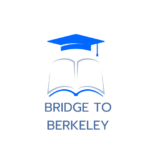Student Life Cycle

Navigating the intricate journey of the student life cycle is a pivotal experience for individuals pursuing higher education. From the initial stages of college application to the eventual transition into the workforce, each phase plays a crucial role in shaping a student’s academic and professional trajectory. Understanding the various milestones within this cycle is essential for students to make informed decisions and maximize their educational opportunities.
Throughout this journey, students encounter a myriad of challenges and opportunities that contribute to their personal growth and development. By delving into the intricacies of the student life cycle, individuals can gain valuable insights into the transitions, decisions, and experiences that define their academic pursuits. Embracing this holistic perspective allows students to proactively engage with their educational journey and set a solid foundation for future success.
Understanding the Student Life Cycle

The student life cycle is crucial for those pursuing higher education, shaping their academic and professional trajectory. From college application to workforce transition, each phase impacts a student’s journey. Understanding these milestones is essential for making informed decisions and seizing educational opportunities, leading to personal growth and future success. This cycle presents challenges and opportunities, emphasizing the importance of a comprehensive grasp of its nuances.
Importance of the Student Life Cycle
The student life cycle plays a crucial role in shaping individuals’ academic and professional journeys. Understanding its significance is essential for students navigating the path from education to the workforce.
Academic Success
The student life cycle directly impacts academic success by guiding students through key milestones such as course selection, study habits, and academic planning. By comprehensively understanding this cycle, students can optimize their academic performance and achieve their educational goals efficiently.
Personal Development
In addition to academic success, the student life cycle also contributes significantly to personal development. This journey allows students to cultivate essential skills such as time management, problem-solving, and communication, fostering personal growth and preparing them for the challenges and opportunities that lie ahead.
Key Stages in the Student Life Cycle
After embarking on the student life cycle, individuals encounter key stages that impact their academic and professional journey significantly. Understanding these critical phases is vital for informed decision-making and seizing educational opportunities, paving the way for growth and success.
Orientation
Orientation marks the initiation of the student journey, where individuals become familiar with their academic institution and its resources. It acquaints them with campus facilities, faculty members, and academic expectations, setting the foundation for a successful academic path.
Course Selection
Course selection plays a pivotal role in shaping a student’s academic trajectory by allowing them to tailor their education to their interests and career goals. It enables students to choose subjects that align with their passions and strengths, fostering a conducive learning environment for overall growth.
Study Habits
Developing effective study habits is essential for academic success and long-term learning retention. By cultivating disciplined study routines, students can optimize their comprehension, retention, and application of course material, enhancing their overall academic performance.
Extracurricular Involvement
Engagement in extracurricular activities outside the classroom enriches the student experience by fostering personal development and skills enhancement. Involvement in clubs, sports, or volunteer opportunities helps students cultivate leadership, teamwork, and time management skills, preparing them for future challenges and opportunities.

Understanding the student life cycle is crucial for academic and professional success. Each phase, from college application to workforce transition, shapes a student’s journey and impacts their future trajectory. By navigating key milestones like course selection, study habits, and extracurricular involvement, students can optimize their performance and develop essential skills. Challenges such as balancing academics and finances, as well as preparing for the workforce, require strategic planning and resilience. Embracing strategies like routine establishment, financial planning, and career readiness can empower students to overcome obstacles and thrive throughout their educational experience. By prioritizing personal growth, seeking mentorship, and setting clear objectives, students can pave the way for a successful career path.

